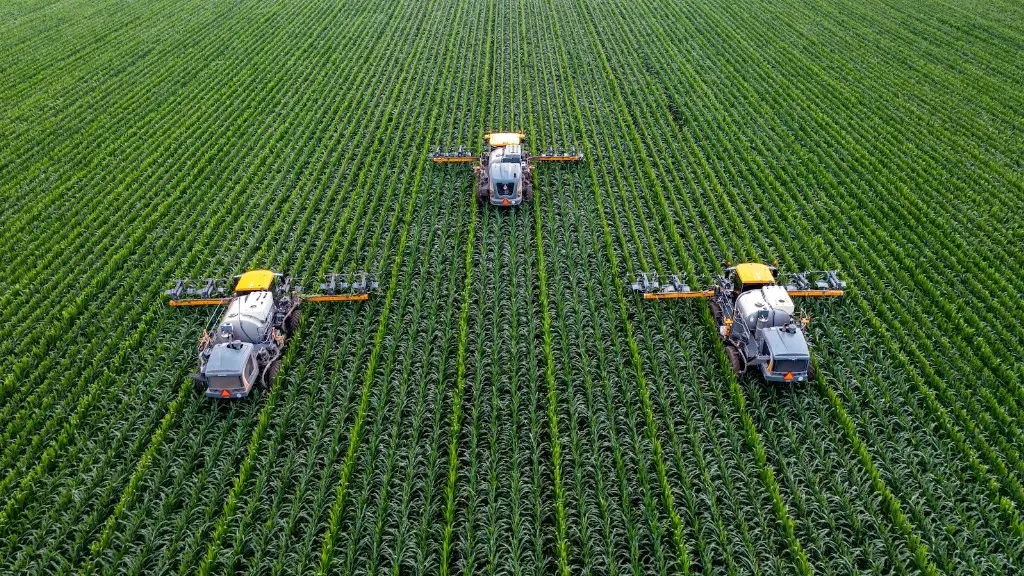Animal health is critical to the success of any agricultural operation. It is responsible for the safety and quality of the food we eat, the health of our environment, and the management of our natural resources. Animal health includes the prevention and control of disease, the assurance of a safe and wholesome food supply, and the humane treatment of animals.
Animal health in agriculture is the study of how to keep animals healthy and productive. This includes preventive measures to keep animals from getting sick, as well as treatment of sick animals. Animal health is important for both food production and animal welfare.
What is the meaning of animal health?
Animal health is a complex issue that encompasses many different aspects. It includes the health of individual animals, as well as the interplay between animal welfare, human health, environment protection and food safety. Animal diseases can have a significant impact on the health of humans and the environment, so it is important to be aware of the risks and take steps to protect both people and animals.
The health of animals is essential to the health of communities. Farmers need access to modern vaccines, antibiotics, and treatments to keep their animals healthy. This, in turn, helps to keep communities vibrant and growing.
What are the 3 categories of animal health products
Animal health products are divided into three main categories: biologics, pharmaceuticals, and feed additives. Biologics, which are products made from living organisms, saw a 37% increase in sales in 2012. Pharmaceuticals, which are synthetic or man-made drugs, saw a 50% increase in sales. Feed additives, which are added to animal feed to improve nutrition or health, saw a 176% increase in sales.
Animal welfare is important for ensuring that animals are healthy and treated well. Good animal welfare requires disease prevention and veterinary treatment, appropriate shelter, management, nutrition, humane handling, and humane slaughter. These practices help to ensure that animals are treated humanely and with respect, and that they are not subjected to unnecessary suffering.
Why is animal health important in agriculture?
The health of animals is important not just for the animals themselves, but for the biosecurity of the wider community. The Red Meat industry in particular has come under increased scrutiny in recent years, with the public expecting higher standards of care for livestock. MLA’s investment in animal health management is a response to these expectations, and contributes to improved biosecurity for everyone.
Farm animal welfare is often overlooked, but it is important for many reasons. Humane farms can create jobs, boost profits and keep local food supplies healthy. By farming crops and livestock, humane farms can reduce environmental damage – recycling nutrients and improving the soil. In addition, humanely raised animals are typically healthier and require less medical intervention, which can save farmers money. Finally, consumers are increasingly interested in humanely produced food, so supporting farm animal welfare can be good for business.
How does animal health affect production?
Livestock diseases are a serious problem because they can endanger the health of both animals and humans. Diseases can lead to animal deaths or decreases in animal productivity, which can have a major impact on the food supply. In addition, diseases can cause economic losses for farmers and ranchers, and can be a source of human suffering.
Maintaining animal health is the central tenet to all captive animal production including aquaculture. Farmers must provide for their captive charges; as the moment practices providing for adequate health are sacrificed, the animals will underperform and mortality may ensue.
Which department deals with animal health in agriculture
The Department of Animal Health is responsible for the promotion of animal health and welfare in Uganda. The department also regulates the import and export of animals and animal products, and advises the government on animal health and disease issues.
A suitable diet for an animal is one that meets their nutritional needs and supports their health. A healthy diet helps animals to exhibit normal behaviour patterns, and to be protected from pain, suffering, injury and disease.
What are the six essential nutrients needed for animal health?
Water, proteins, fats, carbohydrates, minerals, and vitamins are all essential nutrients for the body. Water is necessary for the body to function properly, and it makes up a large part of the body. Proteins are needed for the body to build and repair tissue. Fats are needed for the body to store energy. Carbohydrates are needed for the body to create energy. Minerals are needed for the body to create new cells and to keep the body healthy. Vitamins are needed for the body to create new cells, to repair tissue, and to maintain the body’s immune system.
Animal welfare is a complex and contested topic. They proposed there are three major concepts of animal welfare: health and production; natural behavior; and feelings (affective states). Each concept contains multiple sub-concepts. How these concepts are defined and weighted relative to each other can have important implications for welfare.
What is the study of animal health called
Before enrolling your animal in a clinical study, talk to your veterinarian about the potential risks and benefits of participating. Be sure to ask questions about the study procedures, the number of animals involved, and how the results will be used. You should also find out what happens if your animal has a reaction to the study medication or treatment. Clinical studies are an important part of improving our scientific knowledge, but they also come with some risks. Be sure to discuss these risks with your veterinarian before enrolling your animal in a study.
Animal health surveillance is critical for a variety of reasons. Firstly, it safeguards the health and welfare of animals. This is important for animal welfare and also for food safety, as animals that are sick can contaminate food that is consumed by humans. Secondly, it safeguards the safety of food to consumers of fresh or processed food of animal origin. If animals are sick, the food that they produce can be contaminated and pose a risk to human health. Finally, it ensures quality assurance for trade in animals and animal products. If animals are healthy, they are more likely to be able to be traded and sold, which benefits the economy.
Why is animal health and welfare important?
Yes, it’s true! The health of humans is closely connected to the health of animals, plants, and the environment. Many diseases can be spread between animals and people, so it’s important to be aware of the potential health risks. By working together, we can protect both people and animals from disease.
The main aim of animal improvement is to produce animals that are high yielding in terms of quality, feed conversion rate, growth rate, and maturity. Additionally, another aim is to produce animals that can adapt to varied climatic conditions.
Warp Up
Animal health in agriculture is the study of how to keep animals healthy and productive in a farm or ranch setting. This includes preventative measures against diseases, parasites and other health hazards, as well as management of sick or injured animals.
Animal health is an important aspect of agriculture. It includes ensuring that animals are free from disease and pain, and that they have access to clean water and food. Animal health also contributes to food safety and security.





